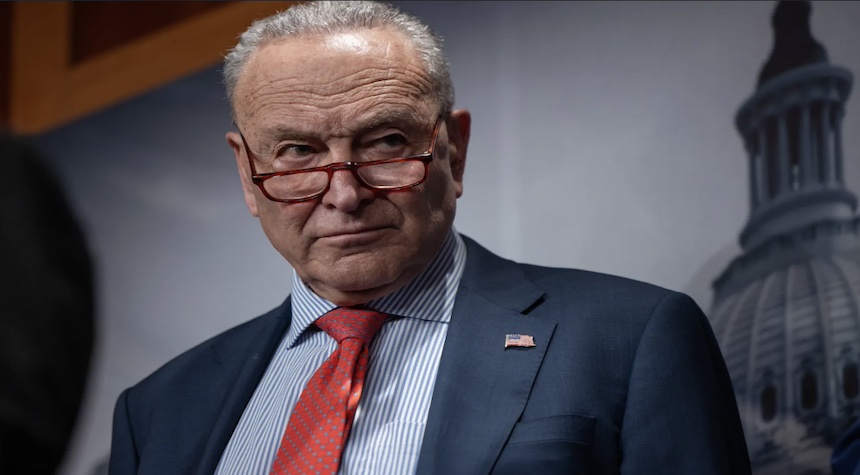A story is brewing in our nation’s capital that’s as bitter as a cup of black coffee. President Donald Trump, in the wee hours of Wednesday, lashed out against Senate Minority Leader Chuck Schumer, accusing him of demanding a staggering $2 billion to secure the Democrats’ approval for hundreds of Trump administration nominees.
He took to his Truth Social page with all the subtlety of a bull in a china shop, dubbing Schumer as “Cryin’ Chuck” and slapping the label of “extortionist” on the Democrats. “There has never, in U.S. history, been such a delay,” he roared. There’s a first time for everything, but this is the first time that’s leaving many Republicans with a sour taste in their mouths.
Schumer and his Democratic cohorts have kept the confirmation votes for over 140 of Trump’s nominees hanging in the balance. It’s become a procedural dance, each confirmation needing a debate and approval of voting rules. A dance that’s kept the Senate twirling in circles, and left Senate Majority Leader John Thune with the unenviable task of keeping the Senate in session to try and clear the bottleneck.

Among those left in limbo are 30 ambassadors, including Mike Waltz, nominated for the U.N., and Kimberly Guilfoyle, Trump’s pick for U.S. ambassador to Greece. In a move that Trump has branded as “political extortion,” Democrats have agreed to let nominees progress in exchange for billions in federal funding.
This past weekend, the Democrats made a play for a hefty sum of government funds, with Schumer reportedly negotiating for $5 billion for the National Institutes of Health, $300 million for the World Food Program, and a mosaic of other requests totaling in the millions. Meanwhile, Republicans are crying foul, pointing out that critical roles in the State Department, Defense, and Energy remain vacant, with more than 300 nominations waiting in the wings.
This standoff has left GOP leaders, including Thune, questioning if the confirmation process is fundamentally broken. There’s talk of invoking the “nuclear option” come September for quicker confirmations. But at what cost?
What we know for certain is this: the stakes couldn’t be higher. There’s a balance to be struck between politics and governance, and right now, it seems the scale is heavily tipped towards the former. The heart of this matter beats with a simple truth: our democracy works best when it works for all. And, as it stands, there’s a whole lot of work to be done.


